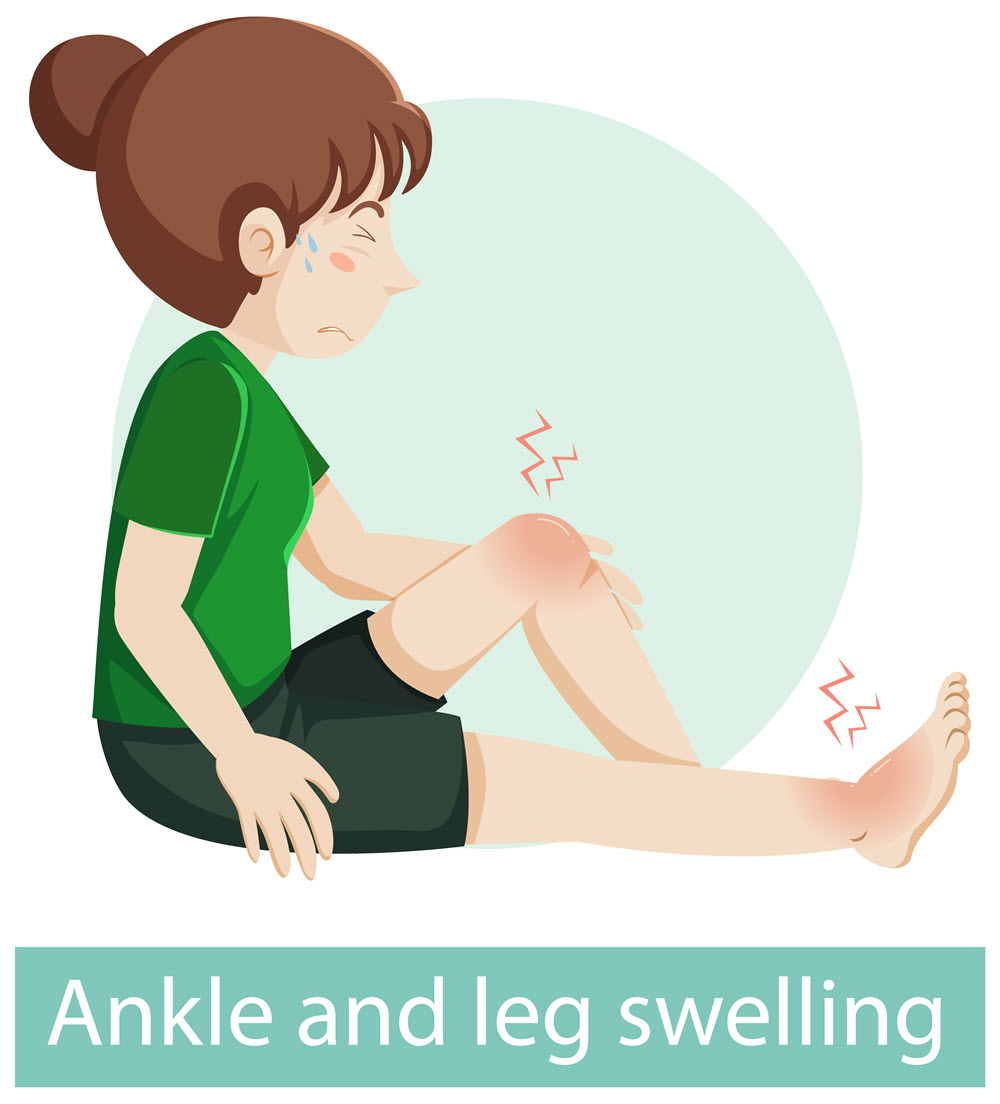Allergies & Immunology
How to Reduce Swelling and Inflammation?
By S.I. (staff writer) , published on January 22, 2021

Medicine Telehealth Health swelling icepacks
What is Swelling?
Inflammation or swelling is your body’s response to offending agents such as injury, pathogens, illness, etc. It defends your body from getting harmed and removes the offending agent [1]. Removal of the offending agent speeds up the process of healing. If untreated, the swelling can progress to chronic inflammation which is damaging. It can last for weeks, months, or even years leading to various health issues. Therefore, it is necessary to stop inflammation from progressing to a chronic form. A huge number of tips can help reduce swelling and improve your overall health. This article focuses on these tips.
What Causes Inflammation?
Inflammation might be due to various underlying causes ranging from bad dietary habits to certain diseases [2]. Increased intake of refined carbs, sugar, white bread, etc., leads to inflammation, obesity, and diabetes as well. Alcohol consumption and sugary beverages also add to it. A sedentary lifestyle is also a contributing factor.
Ways to Reduce Swelling at Home:
Whatever may be the cause of inflammation, there are ways to reduce it. The following are some tips that might help reduce swelling:
- Exercise: exercise and physical activity is the best way to reduce inflammation. 30 to 40 minutes of aerobic exercise daily can do wonders. It not only reduces inflammation but also improves your overall health. 10 to 25 minutes of resistance training can further add to these beneficial effects [3].
- Eliminate inflammatory food items: these foods might be adding to your inflammatory capacity. Therefore, avoiding these can reduce inflammation:
- Sweetened drinks
- Desserts such as candies, cupcakes, icecreams, cookies, etc.
- Processed meat
- Alcohol
- Process snacks such as crackers and chips
- Processed vegetable and seed oils
- White bread and pasta
- Partially hydrogenated food items
- Add anti-inflammatory food items: these foods are known for their ability to reduce inflammation [4]:
- Green tea
- Dark chocolate
- Fatty fish such as salmon, herring, etc.
- Broccoli, cabbage, cauliflower, and other green leafy vegetables
- Berries and grapes
- Bell peppers and chili peppers
- Red wine
- Almonds and other dry fruits
- Turmeric and cinnamon
- Weight loss: obesity is one of the leading causes of inflammation. Weight loss can help reduce inflammation and swelling. Follow a diet plan to lose weight and reduce inflammation.
- Stress Management: stress can add to inflammation and swelling. Practice yoga, meditation, and gratitude to release stress. Learn to manage stress. Do not let stress take over your brain and control you.
- Supplements: fish oil and curcumin supplements are known to reduce swelling.
- Sleep: a good 8 hours of sleep is essential for your health. It not only reduces inflammation but keeps you active.
- Cold therapy: applying ice packs on the site of injury immediately after getting injured reduces swelling by restricting blood flow to the site [5].
- Hot compressions: applying pressure to the injured part of the body reduces swelling by restricting the blood supply of the affected area.
References:
- https://www.ncbi.nlm.nih.gov/pmc/articles/PMC5805548/#:~:text=Inflammation%20is%20a%20biological%20response,damaged%20cells%20and%20toxic%20compounds.
- https://pubmed.ncbi.nlm.nih.gov/26487451/
- https://www.ncbi.nlm.nih.gov/pmc/articles/PMC2789351/
- https://www.ncbi.nlm.nih.gov/pmc/articles/PMC6997513/
- https://www.ncbi.nlm.nih.gov/pmc/articles/PMC3781860/
Find articles related to: Medicine Telehealth Health swelling icepacks
More articles about Allergies & Immunology
Back to the Health Tips Index




